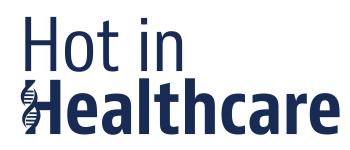I. Overview of proposed key changes
The Swiss Federal Act on Medicinal Products and Medical Devices (Swiss Therapeutic Products Act, TPA), which has been in force since 2002, is currently undergoing its third revision.
The proposed changes are designed to improve the safety and quality of medicinal products and medical devices (therapeutic products). The changes will update the legal framework to match current scientific and technological standards, as well as international laws, especially those of the EU. This alignment aims to reduce trade barriers and increase legal clarity. Additionally, these adjustments will support the development and approval of new therapies and strengthen Switzerland’s position as a hub for research.
The proposed key changes include:
a. Advanced Therapy Medicinal Products (ATMPs)
Currently, ATMPs face inconsistent regulation in Switzerland, causing interpretation issues and uncertainties. The amendments will introduce a clear definition for ATMPs, covering products that contain or consist of living cells or tissues. This definition is essential for creating a uniform regulatory framework, ensuring all such products adhere to the same standards and requirements.
The proposed changes aim to establish a comprehensive regulatory framework tailored to the unique nature of ATMPs. These include specific conditions for their development, manufacturing, approval, and monitoring, along with detailed guidelines for clinical trials and post-market surveillance.
For example, the approval and monitoring processes for ATMPs will include tailored requirements for long-term observation and traceability. In cases where clinical studies are limited due to small patient populations, conditional approval may be granted, allowing ATMPs to be used under specific conditions while additional data on their efficacy and safety are collected post-approval.
With the proposed revision, Switzerland will align its regulations with the EU where ATMPs are a category of innovative therapies regulated under Regulation (EC) No. 1394/2007. This alignment ensures access to innovative therapies and products, enhancing safety, competitiveness, and market compatibility between the EU and Switzerland.
b. Digitalisation in the prescription, dispensing and use of therapeutic products
The revision introduces electronic prescriptions (E-prescriptions), aiming for improved patient safety and reduced fraud. It also includes the creation of mandatory electronic medication plans to ensure accurate information exchange between healthcare providers. Further, the use of electronic systems for paediatric medication dosing will also become mandatory to minimise dosage errors and increase safety for children.
c. Veterinary Medicines
The revision seeks to harmonise Swiss veterinary regulations with the EU to prevent trade barriers and address antimicrobial resistance. This includes modernising drug approval processes and ensuring market access for new therapies in veterinary medicine.
II. Feedback to the proposed changes
In accordance with the applicable process for law revision, the proposed draft was sent to various stakeholders, including cantons, political parties, and interest groups, for feedback. This consultation process on the proposed changes launched on December 8, 2023, and ended in March 2024. The general feedback received, which was published in summer 2024, shows broad support for the majority of the measures. However, stakeholders emphasised the need for clear definitions and practical implementation guidelines.
Some of the main points raised by pharmaceutical companies, biotech companies and their respective associations, were the following:
a. Advanced Therapy Medicinal Products (ATMPs)
International Harmonisation and avoidance of a “Swiss finish“
The introduction of the ATMP category as an equivalent to the equally named EU category is viewed favourably. Stakeholders support the harmonisation of Swiss regulations with EU requirements in order to avoid competitive disadvantages.
However, associations such as Intergenerika, which represents the providers of generics and biosimilars operating in Switzerland, and Scienceindustries (Swiss Business Association for Chemistry, Pharma, and Life Sciences) have expressed concerns about the potential for a “Swiss finish”, where Switzerland might add additional requirements or modifications to the EU regulations. They argue that while it is important to maintain high standards, excessive deviations could complicate the regulatory landscape.
In addition, the proposed definition of ATMPs in Switzerland is broader than in other regions, including the EU. It notably includes nucleic acids. This requires additional regulatory consideration to avoid over-regulation of lower risk products, which would complicate the authorisation process and potentially delay patient access.
Hospital Exemptions
Stakeholders have discussed the introduction of hospital exemptions, which would allow hospitals to prepare and use ATMPs under specific conditions without the need for a full marketing authorisation. The introduction of hospital exemptions is viewed positively by academia as well as the industry, as they enable advances in clinical research and can offer life-saving therapeutic alternatives if no approved drug is available. However, it is emphasised that patients should be treated with approved drugs as a priority and that participation in clinical trials is preferred. Stakeholders further suggest that clear guidelines and oversight mechanisms should be established to govern the use of hospital exemptions.
Traceability and mandatory reporting
The proposed changes aim to enhance the traceability and mandatory reporting of ATMPs to ensure patient safety and product integrity. This includes implementing advanced tracking technologies to monitor the entire lifecycle of these therapies, from production to patient administration. Additionally, there will be mandatory reporting requirements for adverse events and outcomes related to ATMPs.
Stakeholders believe that comprehensive reporting mechanisms are crucial for identifying potential risks and ensuring timely interventions. However, it is also criticised that since marketing authorisation holders have no direct contact with patients, they cannot implement the proposed traceability and reporting obligations, making the proposal impractical. Instead, stakeholders propose that the existing pharmacovigilance system, which already has the necessary mechanisms for monitoring medicinal products, should be further developed.
In addition, stakeholders have raised concerns about data privacy and security. They stress the need for stringent measures to protect patient information and ensure that data is used responsibly and ethically during the proposed tracking and reporting activities.
b. Digitisation in the healthcare sector
General support
The digitalisation of the healthcare system is welcomed in principle. However, it is emphasised that the planned systems must be interoperable and forward-looking.
Therefore, the inclusion of DigiSanté’s plans is important to ensure a smooth implementation. DigiSanté is the national program aimed at promoting the digital transformation of the healthcare system in Switzerland. Developed by the Federal Office of Public Health (FOPH) in collaboration with the Federal Statistical Office (FSO), the program spans ten years (2025–2034), with goals to enhance treatment quality, patient safety, and system efficiency. It focuses on continuous data exchange for treatment, billing, research, and administration, requiring better standardization while ensuring data protection, informational self-determination, and cybersecurity. Starting in 2025, strategic measures will be implemented to achieve these goals.
Electronic prescriptions and medication plans
Electronic prescriptions and medication plans place high demands on doctors, pharmacists and patients. Updating and documenting medication can be problematic due to a lack of standardised digitisation formats and information exchange systems in the healthcare sector. Responsibilities between service providers are also not clearly defined and patients’ computer literacy could pose a challenge. The provisions on e-prescriptions and e-medication plans should be well coordinated with the current revision of the law on the electronic patient dossier (EPD).
III. Conclusion and next steps
Overall, the feedback on the proposed amendments to the Swiss Federal Act on Medicinal Products and Medical Devices (HMG) reflects a broad consensus on the importance of aligning with international standards, particularly the EU regulations for ATMPs. Key concerns include the need for clear definitions and the avoidance of a “Swiss finish”.
The results report of the Federal Council summarising and commenting the responses is currently awaited. We are interested to see if the proposed draft will be amended considering the feedback received. In a next step the proposal must then be approved by parliament.







